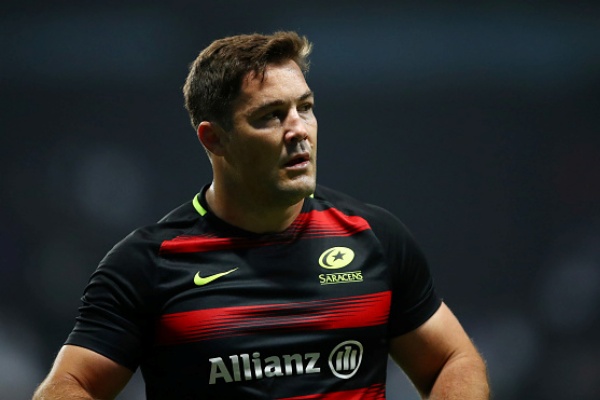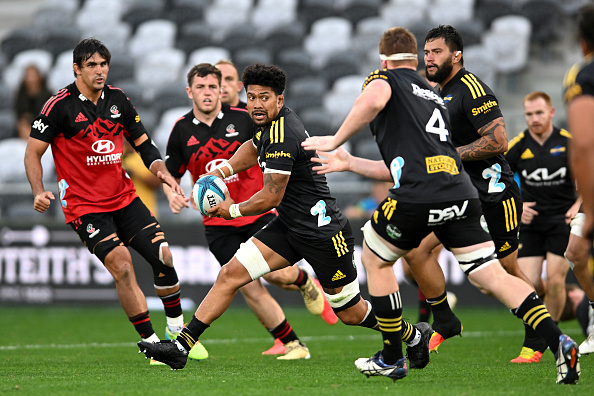Brad Barritt: The forgotten man in Saracens’ salary-cap fallout
The history
With the news last week that Kimono House Ltd had completed their takeover of Saracens in a £32 million takeover led by the likes of former Saracen and Rugby World Cup winner, Francois Pienaar, Nigel Wray is now no longer the main man when it comes to Saracens’ finances. He still maintains a minor share in the company. Meanwhile, his niece, Lucy Wray, is the club’s CEO. But in most people’s minds, this is the final step in moving on from the salary-cap scandal that first broke in 2019.
Once all aspects of the investigation were concluded, Saracens were fined over £5.3 million and deducted 105 league points. This ensured they were confined to the doldrums of the Championship for at least one season. Many wanted to see their titles stripped in the years they broke the cap but this did not occur.
We are not here to discuss if the punishment was adequate. Instead, we look at the impact these sanctions have had on the pitch. One area that was watched by fans across the globe was what would happen to Saracens’ stable of superstars. Surely Maro Itoje would not be seen playing away to Richmond. Maybe we will sign Billy Vunipola. Perhaps Owen Farrell’s England career is over if he stays. These were some of the rival fans’ thoughts as they watched on, expecting these world-class players to leave.
Many of the big-name players did move on to other clubs. England internationals Richard Wigglesworth and Ben Spencer chose to stay in the Gallagher Premiership. While others including Wallaby Will Skelton and British and Irish Lion George Kruis took the chance to explore opportunities abroad. However, after discussions with Warren Gatland and Eddie Jones, much of the squad penned new deals with the club and either decided to stick it out in England’s second division or go out on loan to continue and push for England selection.
Saracens’ return
Unsurprisingly Saracens returned to the Gallagher Premiership at the first time of asking. This is despite the fact they suffered a shock loss to Cornish Pirates in their first game. The 2021/22 season is the first real chance we have to look at how Saracens have emerged on the pitch from this dark period in their history.
The team sheet is still mightily impressive reading with internationals littered across it. This means it is perhaps unsurprising to see Saracens sitting second in the table behind Leicester Tigers after 16 rounds. Having both their bye weeks sitting in the international periods and England has not come calling for as many of their players as they might have expected has most certainly helped, but the club has played some exceptional rugby at times.
It has not all been easy for the north London side though. Long-term injuries to key players such as Marco Riccioni, Jamie George and Owen Farrell have seen the trio play just 14 times for Saracens combined. Every club suffers injuries though and Saracens have dealt well in most aspects. Players who have stepped up incredibly well in their absence include Tom Woolstencroft who has been in sensational form, scoring five tries in his last four games.
What is interesting is not the quality of players missing, but what they bring aside from their playing ability. When fit Farrell is this team’s captain and George has also captained the side on occasion. Without these players, Saracens have often looked devoid of on-field leadership.
Examples can be seen in their game away to Exeter Chiefs where they were marched back for ill-discipline on multiple occasions, or more recently last weekend against London Irish; they took the lead for the first time in the match in the 77th minute but were unable to see the game out after playing too much rugby near their try line and conceding a turnover which later resulted in a penalty.
This is a pattern of behaviour that we are not used to seeing with Saracens sides of old. A team that was famous for their disciplined approach and ability to close out games. Sure, at this stage of the season it is not catastrophic, and these players will return to their club to add their on-field presence. It suggests though that the biggest casualty of the salary-cap fallout was not one of the superstars that moved club.
The missing piece
A man who, in recent years, was never away on international duty. Someone who was incredibly durable, famously refusing general anaesthetic in 2018 when he required surgery on his cheek so that he would be allowed to play in a European Champions Cup quarter-final against Leinster. That man was Brad Barritt.
He was appointed captain of the team from the 2015/16 season and was a calming presence around the squad. While he seldom got the headlines, his value to the team cannot be underestimated. As well as being their mouthpiece to communicate with the referee in a way that did not result in being marched backwards, he was the team’s defensive leader and often a focal point of their attack, especially off first phase ball.
This leadership is crucial to a team. Rugby is easy when things are going well and you are on the front foot. But when you are in a tight game that could swing either way, teams need leaders to help inspire players. Especially when the international players are away, leaders help to bring that experience to ensure the right decisions are made.
Looking at the Saracens team at the moment, it is still full of quality, even during the Six Nations. The problem is there is no standout leader. Mako Vunipola is doing an admirable job but can be seen to get on the wrong side of the referee. Moreover, you cannot expect a prop to play a full game every single week. Alex Goode has been given the captaincy too at times this season. It is very difficult to be in constant communication with your team and the referee though from a position such as fullback.
In terms of player quality, the Saracens academy has produced another international to replace him in Nick Tompkins. Tompkins is an incredible player but a different style of 12 to his predecessor. Where Barritt would run straight and hard to get over the gain line, Tompkins lacks that bulk so will be more often seen using his footwork, pace and offloading skills to try and open up a defence. This is not wrong by any means. It can be very successful as we have seen with Saracens’ attack up there with the best in the league this season. Although it is something different that the other players in the backline need to adapt to.
Furthermore, Brad Barritt was a player that was almost guaranteed to get over the gain line in attack. This has been a problem in games this season such as those games away to Exeter and Irish. Saracens have not had that ability and as such their attack has looked out of ideas as they moved sideways without any forward progress.
Final thoughts
Saracens will find a way to solve this problem in the attack. After all very few expected Saracens to go from the Championship straight to Premiership contenders once more so there are bound to be some kinks. In addition, returning players will add their world-class ability in certain crucial positions such as flyhalf. What may remain a longer-term issue though is the loss of Barritt’s leadership, especially in those tougher situations.
“Main Photo:”
Embed from Getty Images



